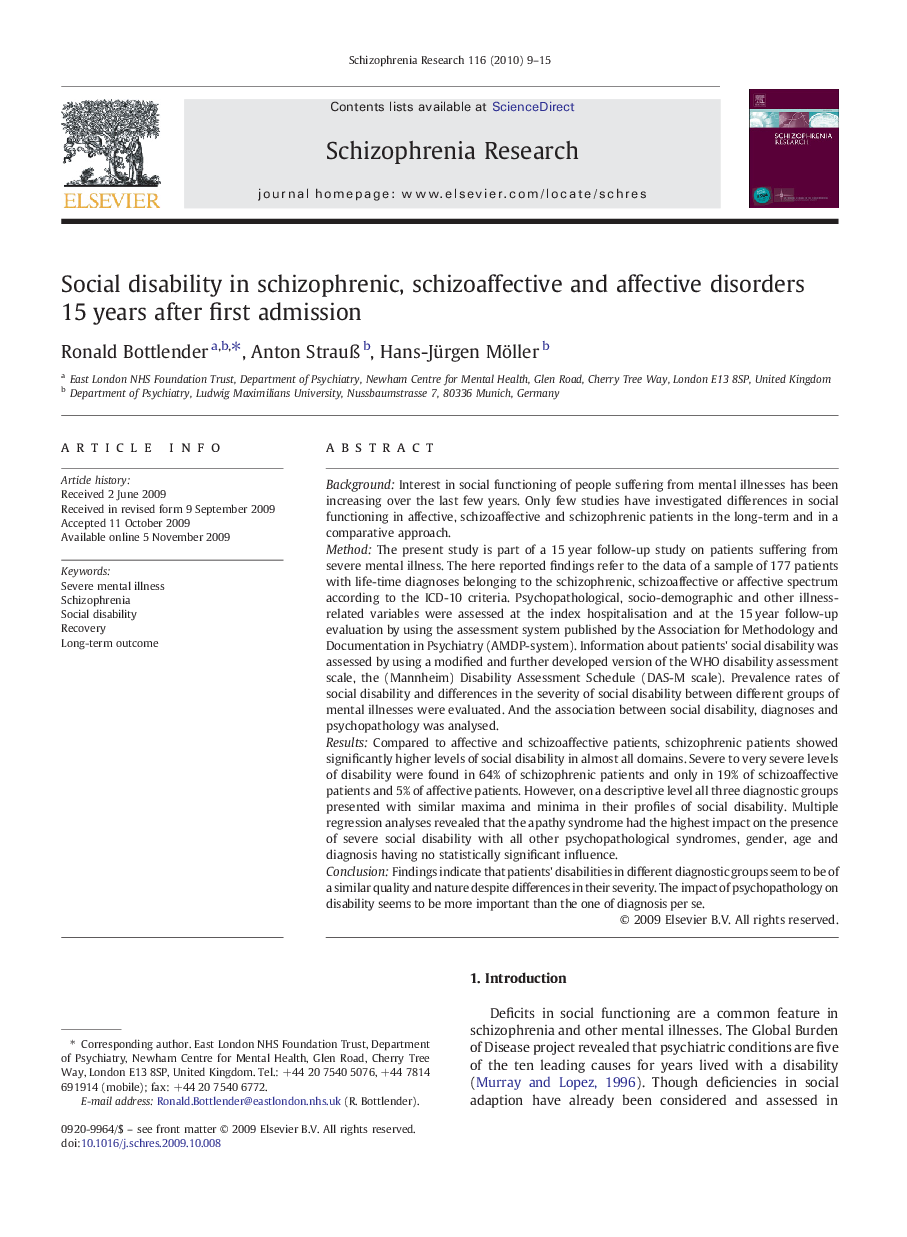| Article ID | Journal | Published Year | Pages | File Type |
|---|---|---|---|---|
| 341707 | Schizophrenia Research | 2010 | 7 Pages |
BackgroundInterest in social functioning of people suffering from mental illnesses has been increasing over the last few years. Only few studies have investigated differences in social functioning in affective, schizoaffective and schizophrenic patients in the long-term and in a comparative approach.MethodThe present study is part of a 15 year follow-up study on patients suffering from severe mental illness. The here reported findings refer to the data of a sample of 177 patients with life-time diagnoses belonging to the schizophrenic, schizoaffective or affective spectrum according to the ICD-10 criteria. Psychopathological, socio-demographic and other illness-related variables were assessed at the index hospitalisation and at the 15 year follow-up evaluation by using the assessment system published by the Association for Methodology and Documentation in Psychiatry (AMDP-system). Information about patients' social disability was assessed by using a modified and further developed version of the WHO disability assessment scale, the (Mannheim) Disability Assessment Schedule (DAS-M scale). Prevalence rates of social disability and differences in the severity of social disability between different groups of mental illnesses were evaluated. And the association between social disability, diagnoses and psychopathology was analysed.ResultsCompared to affective and schizoaffective patients, schizophrenic patients showed significantly higher levels of social disability in almost all domains. Severe to very severe levels of disability were found in 64% of schizophrenic patients and only in 19% of schizoaffective patients and 5% of affective patients. However, on a descriptive level all three diagnostic groups presented with similar maxima and minima in their profiles of social disability. Multiple regression analyses revealed that the apathy syndrome had the highest impact on the presence of severe social disability with all other psychopathological syndromes, gender, age and diagnosis having no statistically significant influence.ConclusionFindings indicate that patients' disabilities in different diagnostic groups seem to be of a similar quality and nature despite differences in their severity. The impact of psychopathology on disability seems to be more important than the one of diagnosis per se.
